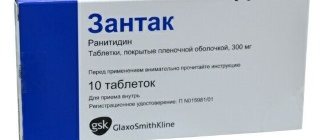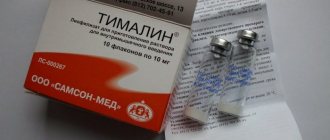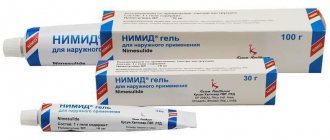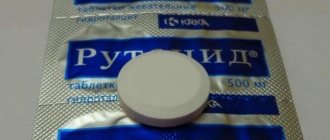Write a review
Reviews: 0
Manufacturers: Biosynthesis
Active ingredients
- Sodium nucleinate
Disease class
- Agranulocytosis
- Other white blood cell disorders
- Immunodeficiency, unspecified
- Mental and behavioral disorders caused by alcohol consumption - dependence syndrome
- Mental disorder not otherwise specified
- Keratitis
- Herpes simplex virus keratitis and keratoconjunctivitis (B00.5)
- Macular and posterior pole degeneration
- Otitis externa
- Purulent and unspecified otitis media
- Acute upper respiratory tract infection of multiple and unspecified localization
- Bacterial pneumonia, not elsewhere classified
- Pneumonia caused by other specified infectious agents
- Pneumonia in diseases classified elsewhere
- Pneumonia without specifying the pathogen
- Acute lower respiratory tract respiratory infection, unspecified
- Chronic tonsillitis
- Other upper respiratory tract diseases
- Pyothorax
- Periodontal disease
- Stomach ulcer
- Duodenal ulcer
- Liver disease, unspecified
- Rheumatism, unspecified
- Bacterial intestinal infection, unspecified
- Diarrhea and gastroenteritis of suspected infectious origin
- Other and unspecified infectious diseases
- Mycosis, unspecified
- Viral infection of unspecified localization
- Herpes simplex virus infections
- Herpetic eye disease
- Shingles
- Herpes zoster with ocular complications
- Phosphorus metabolism disorders
- Other specified metabolic disorders
Clinical and pharmacological group
- Not indicated. See instructions
Pharmacological action
- Immunostimulating
- Leukopoietic
Pharmacological group
- Other immunomodulators
Pharmacodynamics and pharmacokinetics
Pharmacodynamics
Sodium nucleinate is a product of microbial origin - it is isolated from baker's yeast. RNA is isolated from yeast biomass and provides a high degree of purification from protein impurities. Thus, this is a natural preparation of nucleic acids - the sodium salt of low molecular weight RNA.
It has a wide range of biological activity: regulates the migration of T-lymphocytes, enhances phagocytosis, interferon production, increases nonspecific resistance of the body in immunodeficiency states. Stimulates bone marrow (leukopoiesis) and nucleic acid metabolism. Accelerates regeneration in ulcerative defects, trophic ulcers, ulcerative colitis. Its use reduces the manifestations of allergic diseases.
Pharmacokinetics
No data provided.
Pharmacological properties
"Sodium nucleinate" has a wide spectrum of action. Its components accelerate regeneration, normalize bone marrow function, and activate the formation of leukocytes. The medication is also responsible for stimulating natural immune processes in the body. Its action is aimed at combining blood components responsible for maintaining tissue protective forces and restoring the functioning of macrophages.
Sodium nucleinate, which is part of the drug, increases the body's antitoxic resistance. At the same time, it reduces the immunosuppressive properties of antibiotics, hormones and cytostatics. Numerous medical studies confirm the drug’s ability to regenerate tissue in many diseases, including ulcerative colitis.
Indications for use
- complex treatment of secondary immunodeficiency conditions (recurrent viral infections, chronic lung diseases, periodontal disease, bacterial infections, immunodeficiency conditions in the elderly);
- correction of agranulocytosis, lymphopenia and leukopenia;
- disturbance of phosphorus metabolism (rickets);
- deficiency of ribonucleotides in tissues and blood;
- retinal dystrophy;
- for the purpose of prevention in persons intensely involved in sports and in extreme conditions.
Adverse reactions
Hypersensitivity to the substances contained in the medication can provoke an allergic reaction. It usually manifests itself as skin rashes, severe itching and irritation. In such a situation, you should consult a doctor to change the treatment or adjust it. "Sodium nucleinate" can cause increased sweating, bradycardia, and central nervous system depression. There is no information about an overdose with subsequent development of complications.
Sodium nucleinate, instructions for use (Method and dosage)
The tablets are taken orally after meals. For adults, the daily dose is 1-2 g, divided into 3-4 doses. With varying severity of the disease, the course of treatment can range from 10 days to 6 weeks. For chronic diseases, courses can be carried out two to three times a year.
Elderly people with immunodeficiency conditions are prescribed 1 g per day for 3 weeks twice a year (usually spring and autumn). For leukopenia, adults are prescribed 1 tablet 2 times, for a course of up to 10 days. Athletes during competitions 1–1.5 g per day in 3–4 doses. For the prevention of diseases, persons with occupational hazards are prescribed the drug at a dose of 1–1.5 g per day for 3 weeks, 2 times a year.
Sodium nucleinate is prescribed to children under one year of age in a dosage of 0.005 g three times a day, for children from one to 3 years of age - 0.015-0.03 g three times a day, from 3 to 5 years - in a dosage of 0.05 g three times a day, from 12 years old - prescribed 0.1 g three times a day. Course up to 14 days.
general information
The medicine goes on sale in two dosage forms: tablets and powder for suspension. The pills are film-coated, packaged in 50 pieces per package. One tablet contains 250 mg of active ingredient. Its name is the same as the trade name of the medicine. Excipients include: paraffin, magnesium carbonate, starch, titanium dioxide, beeswax. Powder for suspension is sold in 10 ml bottles. One package contains 50 of these vials. Each bottle contains 500 mg of active substance.
Reviews of Sodium Nucleinate
In children and adults with allergic diseases, signs of immune deficiency are detected, therefore immunotropic pharmacological agents are prescribed. In pediatric allergy and dermatological practice, as well as for children who are often ill, 20-30 years ago Levamisole, Galavit, polyoxidonium, diucifon, Gepon and Sodium Nucleinate were prescribed, and a little later - natural modulators: tactivin, thymalin, vilosen, thymogen. However, in the last decade, cytokines have been used more widely in clinical practice. However, long-known drugs are still used today. It was noted that the use of sodium nucleinate gives positive results in 52% of patients. In reviews, the use of this drug in children, which was prescribed for frequent colds, is more common.
- “... Before using this drug, the child was sick consistently once a month, after that he was not sick for 8 months. The drug is not cheap; 1 package was not enough for a course.”
- “... The immunologist prescribed us for a month. One package was not enough. We started getting sick less often.”
- “... They prescribed it, but I didn’t see any effect.”
- “... I am very pleased with the drug, because... the child was sick for only 3 days - he had never recovered so quickly! We will definitely complete the course to the end.”
There is positive experience with the use of sodium nucleinate in the complex treatment of systemic lupus erythematosus in adults, which has been proven by immunological studies. In the blood, the concentration of IgG and CEC decreases, the number of lymphocytes increases and the activity of neutrophils for phagocytosis increases. In patients, a positive effect was observed in 92% of cases.
Similar drugs:
- Pentoxylum Substance-powder
- Methyluracil Ointment for local and external use
- Leucogen Oral tablets
- Dicarbamine Oral tablets
- Leucostim Solution for injection
- Sodium nucleinate Oral tablets
- Neostim Lyophilisate for the preparation of a solution for intravenous and subcutaneous administration
- Betaleucine Lyophilisate for the preparation of a solution for intravenous and subcutaneous administration
- Methyluracil Oral tablets
- Deoxynate (Desoxynatum) Solution for injection
** The Drug Directory is intended for informational purposes only. For more complete information, please refer to the manufacturer's instructions. Do not self-medicate; Before starting to use the drug Sodium Nucleinate, you should consult a doctor. EUROLAB is not responsible for the consequences caused by the use of information posted on the portal. Any information on the site does not replace medical advice and cannot serve as a guarantee of the positive effect of the drug.
Are you interested in the drug Sodium Nucleinate? Do you want to know more detailed information or do you need a doctor's examination? Or do you need an inspection? You can make an appointment with a doctor - the Euro lab is always at your service! The best doctors will examine you, advise you, provide the necessary assistance and make a diagnosis. You can also call a doctor at home . Euro lab clinic is open for you around the clock.
** Attention! The information presented in this medication guide is intended for medical professionals and should not be used as a basis for self-medication. The description of the drug Sodium Nucleinate is provided for informational purposes and is not intended for prescribing treatment without the participation of a doctor. Patients need to consult a specialist!
If you are interested in any other drugs and medications, their descriptions and instructions for use, information about the composition and form of release, indications for use and side effects, methods of use, prices and reviews of drugs, or you have any other questions and suggestions - write to us, we will definitely try to help you.
Consumer Opinions
What do patients say about treatment with Sodium Nucleinate? Reviews from real consumers reveal all the advantages and disadvantages of this immunomodulator. It often happens that the description of a medicine causes delight, but the experience of use is simply disappointing.
Considering the pharmacological properties and indications for use, the medicine should be prescribed everywhere. However, the opinion of doctors on this issue is not so positive. There is no reliable evidence of high effectiveness. In other words, one cannot be sure that a person’s immunity will increase after treatment. At the same time, there are positive reviews from people where they talk about the miraculous properties of the medicine.
The opinions of other patients who talk about the serious consequences of using an immunomodulator are interesting. After completing the course of treatment, some of them began to lose hair. Doctors suggest that Nucleinat stimulated hematopoiesis, but at the same time significantly depleted iron reserves in the body. As a result, a metabolic failure occurred and total baldness began. These examples are very indicative for other patients. You cannot start therapy without consulting a specialist. Otherwise, you can cause irreparable damage to the entire body, even harm your health.
Analogue tools
The drug described in the article is not suitable for all patients. Some people experience adverse reactions. Others cannot afford treatment due to financial problems, because the cost of the drug varies from 1,500 to 2,000 rubles. Therefore, consumers are forced to look for analogue means. It is not recommended to approach this issue on your own. Only a doctor can prescribe this or that medication. What analogues does Sodium Nucleinate have?
Among the variety of medicines with similar effects, Lykopid and Imunofan deserve special attention. These are immunomodulators of endogenous origin. Let's look at each of them in more detail:
- "Lycopid". The drug is included in the complex therapy of diseases that are accompanied by secondary immunodeficiency. It can be used by adults and children, but pregnant and lactating women should avoid it. At the beginning of treatment, an increase in temperature to 38 degrees is permissible. The disorder goes away on its own; discontinuation of the medication is not required. If health problems persist for several weeks, you should visit your doctor. The cost of pills depends on the amount of active substance and ranges from 250-1500 rubles.
- "Imunofan". This is an immunostimulating drug with antioxidant and hepatoprotective effects. It is prescribed for the prevention and treatment of chronic inflammatory diseases of various etiologies. The medicine can be used during pregnancy, but always under the supervision of a doctor. The price varies from 430 to 550 rubles.
The described medications are not complete synonyms of “sodium nucleinate”, but are characterized by similar pharmacological properties. In addition, the cost of analogues is several times lower, which makes them accessible to the average patient.




